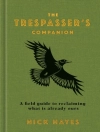This volume invokes the “postcolonial contemporary” in order to recognize and reflect upon the emphatically postcolonial character of the contemporary conjuncture, as well as to inquire into whether postcolonial criticism can adequately grasp it. Neither simply for nor against postcolonialism, the volume seeks to cut across this false alternative, and to think with postcolonial theory about political contemporaneity.
Many of the most influential frameworks of postcolonial theory were developed during the 1970s and 1990s, during what we may now recognize as the twilight of the postwar period. If forms of capitalist imperialism are entering into new configurations of neoliberal privatization, wars-without-end, xenophobic nationalism and unsustainable extraction, what aspects of postcolonial inquiry must be reworked or revised in order to grasp our political present?
In twelve essays that draw from a number of disciplines—history, anthropology, literature, geography, indigenous studies— and regional locations (the Black Atlantic, South Africa, South Asia, East Asia, Australia, Argentina) The Postcolonial Contemporary seeks to move beyond the habitual oppositions that have often characterized the field, such as universal vs. particular; Marxism vs. postcolonialism; and politics vs. culture. These essays signal an attempt to reckon with new and persisting postcolonial predicaments and do so under four inter-related analytics: Postcolonial Temporality; Deprovincializing the Global South; Beyond Marxism versus Postcolonial Studies; and Postcolonial Spatiality and New Political Imaginaries.
Table des matières
Introduction: Thinking the Postcolonial Contemporary
Jini Kim Watson and Gary Wilder
1. Foucault, Fanon, Intellectuals, Revolutions
Anthony C. Alessandrini
2. When Revolution Is Not Enough: Tracing the Limits of Black Radicalism in Dionne Brand’s Chronicles of the Hostile Sun and In Another Place, Not Here
Laurie R. Lambert
3. Mysterious Moves of Revolution: Spectres of Black Power, Futures of Postcoloniality
Sharad Chari
4. Reading Du Bois’s Revelation: Radical Humanism and Black Atlantic Criticism
Gary Wilder
5. De-provincializing Anticaste Thought: A Genealogy of Ambedkar’s Dalit
Anupama Rao
6. The Postcolonial Avant-Garde and the Claim to Futurity: Edwar al-Kharrat’s Ethics of Tentative Innovation
Adam Spanos
7. Neither Greek nor Indian: Space, Nation and, History in River of Fire and the Mermaid Madonna
Sadia Abbas
8. For a Marxist Theory of Waste: Seven Remarks
Vinay Gidwani
9. Goolarabooloo Futures: Mining and Aborigines in North-West Australia
Stephen Muecke
10. Buenos Aires’ La Salada’s Market and Plebeian Citizenship
Carlos A. Forment
11. The Speed of Place and the Space of Time: Toward a Theory of Postcolonial Velo/city
Peter Hitchcock
12. The Wrong Side of History: Anachronism and Authoritarianism
Jini Kim Watson
List of Contributors
Acknowledgments
Index
A propos de l’auteur
Gary Wilder is a Professor of Anthropology, History, and French and Director of the Committee on Globalization and Social Change at the Graduate Center of the City University of New York. He is the author of Freedom Time: Negritude, Decolonization, and the Future of the World (Duke, 2015) and The French Imperial Nation-State: Negritude and Colonial Humanism between the Two World Wars (Chicago, 2005). He is co-editor of The Postcolonial Contemporary: Political Imaginaries for the Global Present (Fordham, 2018) and The Fernando Coronil Reader: The Struggle for Life Is the Matter (Duke, 2019).












